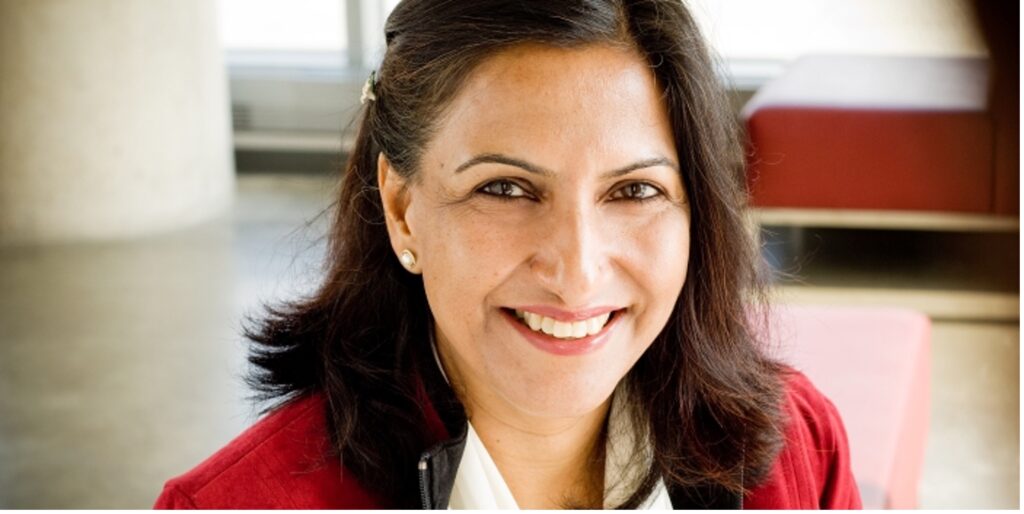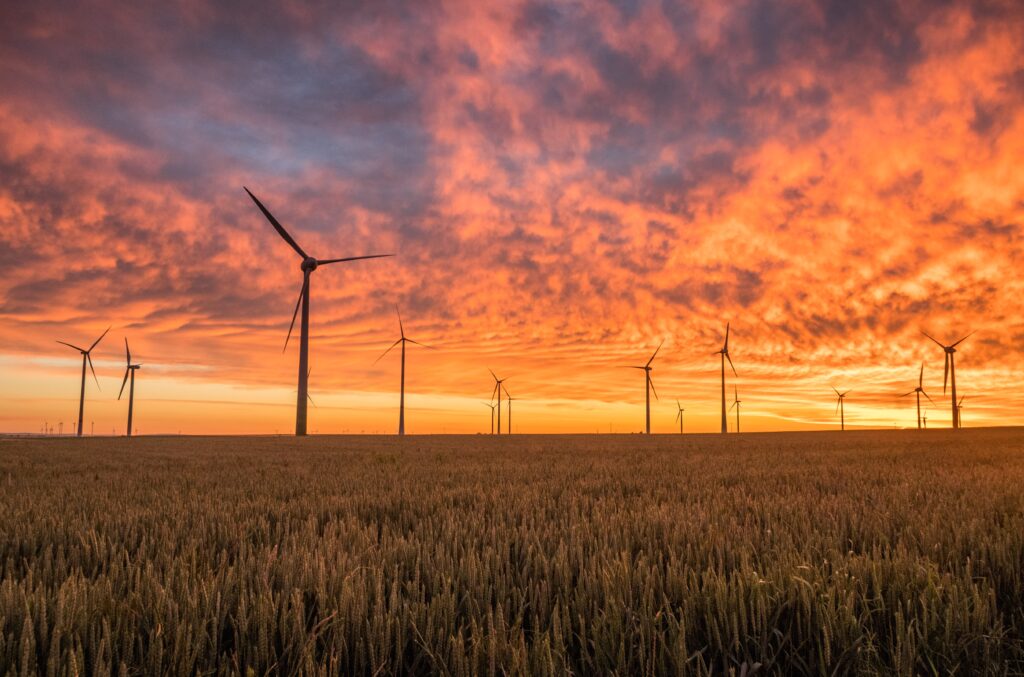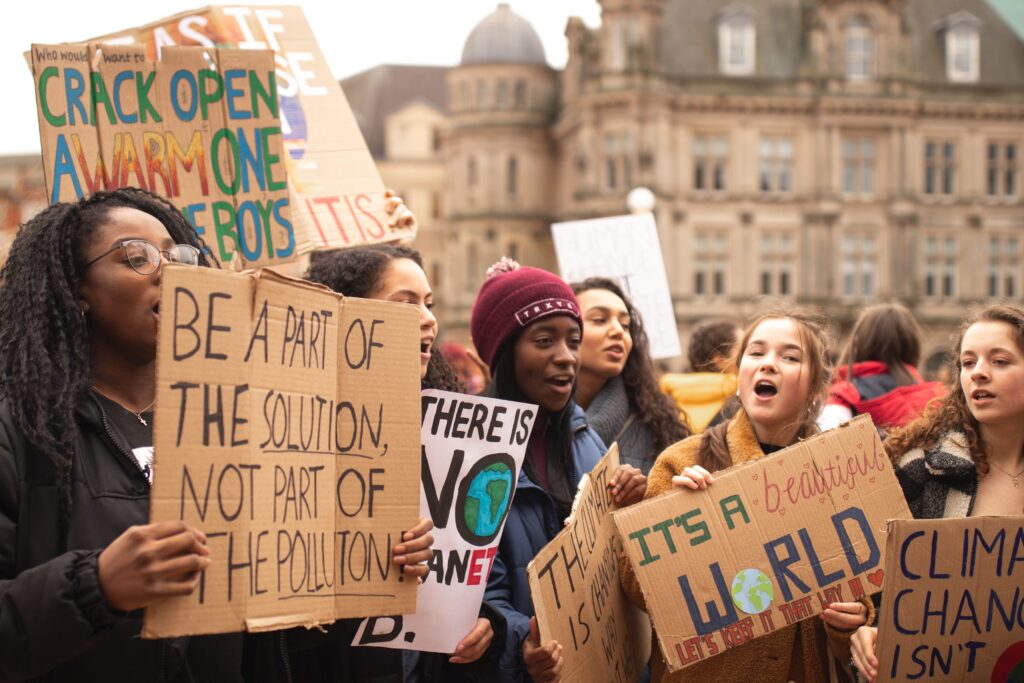Written By:
Zoe Kurtz ‘22
Contributing Writer
Connect with Zoe on LinkedIn
Riley Nelson ‘22
Contributing Writer
Connect with Riley on LinkedIn
It is our pleasure to introduce the Graduate Family Business Interest Group at the Grossman School of Business (GSB). We are a group of Master of Accounting and Sustainable Innovation MBA students interested in learning and sharing how family businesses are leading innovative changes to embed sustainable development goals into their core operations.
Throughout the year, we will spotlight innovative families and incorporate student perspectives to explore and illustrate the impact of family businesses in society and the economy. To kick things off, we interviewed Professor Dita Sharma, the Schlesinger-Grossman Chair of Family Business at GSB to paint a picture of the importance of family business. Dr. Sharma has spent her whole life around family businesses, from her own family’s as a child to countless others as an advisor. She received her Ph.D. from the University of Calgary, and her research heavily focuses on succession, governance, and innovation. Her skills and expertise add value to family businesses all over the world, and she is now focused on family enterprise run by UVMs alumni in Vermont and beyond. Founder of GSB’s Family Business Awards and the Schlesinger Global Family Enterprise Case Competition, she maintains focus on integrating classroom learning with the lived experiences of business families.

What defines a family business? How do they differ from normal businesses?
Family business (FB) is an enterprise whose vision and strategic direction is controlled by members of a family through ownership, management and/or governance. The controlling family often aspires for transgenerational continuity and a positive legacy in the community.
In non-family businesses no single family has enough ownership to control the company’s vision or direction. While a large majority of the world’s businesses are family controlled, enterprises in which the operational roles are held by non-family members are sometimes perceived as non-family businesses.
Tell us about your personal experience in family business.
I grew up in a business family in an industrial town in India. Everyone I knew – my classmates, friends, relatives, neighbors – were entrepreneurs running small and medium enterprises in different industries. My family was highly regarded in our community for its integrity as we worked hard to provide for our family and those of our employees. New ventures were launched regularly to meet the product and service needs of the community; and existing ventures were transformed into new directions. So, for me, entrepreneurship and family business are a good way to make a living, support a community, and leave a legacy. As an educator, I enjoy developing innovative programs to support the learning of students and bring them closer to business families.
“So, for me, entrepreneurship and family business are a good way to make a living, support a community, and leave a legacy.“
What are challenges that family businesses face today and how are they better able to adapt to those challenges than other types of businesses?
Family business leaders must learn to run two separate and overlapping human systems of family and business successfully. Troubles in one can easily seep to the other and managing this challenging polarity day after day, year after year, decade after decade, takes significant effort and patience. The porous boundaries also turn into strengths during tough times as the family pulls its resources to support the business, or vice versa.
In your experience, have family businesses embraced sustainability faster than other companies? If yes, what about family businesses make this possible?
Long-lived family firms have operated on the basis of stakeholder capitalism for centuries, so the concept of sustainability is not new to them, though the terminology as used today might be. However, multi-pronged efforts are underway by family business associations like the Family Business Network and Family Firm Institute, consulting companies like KPMG and PwC, and university programs like Grossman School’s Graduate Certificate in Sustainable Family Enterprise to help expedite the comfort level with related terminology and insights. As each nation sets its ambitious sustainability targets, there is increased interest in engaging family business leaders help to accomplish them. And, business leaders are responding with interest.
How has COVID affected family businesses in the past year?
An external crisis like the COVID-19 pandemic exposes the underlying strengths and weaknesses of an organization. Family businesses like State Garden, Rhino Foods, and our other UVM FB Award winners, that continue to reinvest and reinvent themselves, remain frugal in their expenditures and earnest in supporting their employees and communities, and take time to build strong family relationships and networks, have found many opportunities to transform themselves and accelerate their sustainable development journey amidst this pandemic. Others, marred by fundamental family or business issues have faced swift bankruptcies and closures, or are slowly limping towards that end.
How does UVM support family businesses, and what are specific goals for the university within the family business arena going forward?
With its focus on sustainability, entrepreneurship, and family business, University of Vermont’s Grossman School of Business is already positioned strategically in global conversations related to sustainability. Several faculty members focus their research on family business interface. Generated knowledge is shared not only in our undergraduate and graduate classrooms but also through experiential programs like the Family Enterprise Case Competition, FB-Sustainability Forums, and FB Awards. We believe in providing students opportunities to build their own professional networks and find ways to bring students in close interaction with business leaders working to embed sustainable development principles into their core operations. We aspire to continue on this pathway.
Do you have advice for students looking to work with/for family businesses?
Four possibilities: launch a family business – buy an existing family business – join a family business – build a consulting practice. In all cases, start small dream big.
First pathway to career launch could be to start a new venture by pooling talent and resources with family members. Over time, such ventures grow and provide opportunities to contribute to the community while building a positive legacy.
Second possibility is to join an existing business with an aim to buy into it over time. This could be a business within your networks or in an industry or location of interest. As the boomer generation retires over the next twenty years, several enterprises will change hands and those with experience will find an opportunity to become owner-entrepreneurs.
Third, students eager to join large family businesses will benefit from studying the shareholder reports and company history to understand the values and aspirations of the controlling family. Where possible, conducting informational interviews with family members and/or long-term employees will shed light on their views on sustainability. Working in a company with values aligned to your own helps to accelerate careers.
A fourth possibility is to join a consulting company focused on functional areas in which you have an expertise – accounting, finance, business analytics, marketing etc., and focus on family (or private) businesses and serving their sustainable development needs.
Alignment of values and interests is key in any career success. Taking time to clarify your own values and how you are projecting them – your brand can be useful. In three words or less, what does your name stand for today?
“Alignment of values and interests is key in any career success. Taking time to clarify your own values and how you are projecting them – your brand can be useful“
Lastly, what is your favorite place in Burlington?
I enjoy walking and hiking typically at Shelburne Farms or Mount Philo. Sunrise over Camel’s Hump and sunsets across the lake often serve as great reminders of the blessing of living in Vermont.
Professor Dita Sharma was kind enough to provide a highlight of family businesses and their unique intricacies in this interview, but there is a lot more to learn. Family businesses are all around us. They comprise 90% of firms in North America and, according to The Economist, comprise over 90% of firms world-wide. GSB is working towards becoming a focal point of knowledge and connection for family business, and there are lots of ways for interested students to become involved. Professor Sharma’s research and her courses dive into the specifics of creating and governing innovative family businesses. Additionally, the undergraduate and graduate family business clubs provide deeper peer-to-peer conversation and learning/networking opportunities for students interested in family business. If you are interested in joining either of these clubs, please reach out to Riley Nelson (riley.nelson@uvm.edu) if you are a graduate student and Dani Schmidt (Daniele.Schmidt@uvm.edu) if you’re an undergraduate.


